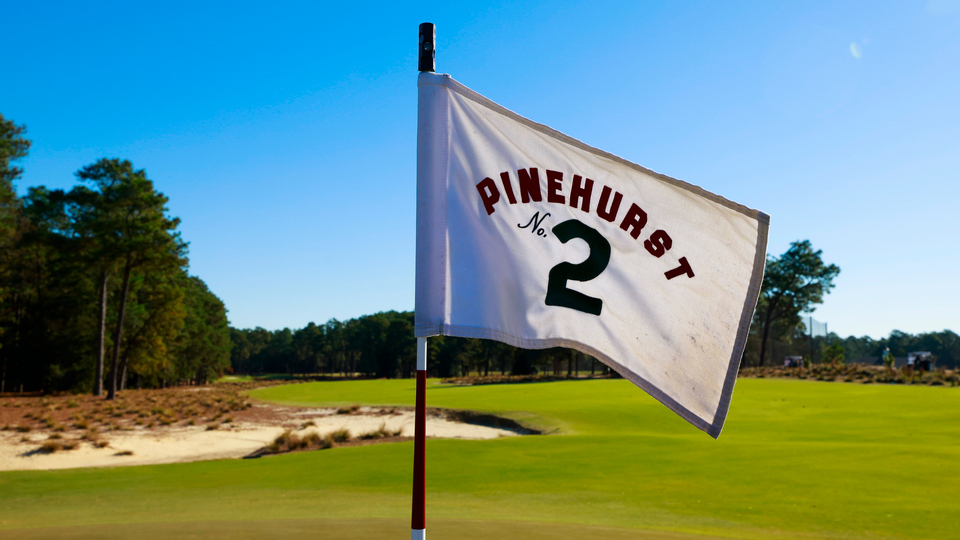Pinehurst, NC. This week’s U.S. Open marks the fourth time Pinehurst will serve as host.
The United States Golf Association (USGA) — the organising group behind the event — took a bold step in announcing in September 2020 that Pinehurst would become an “Anchor Site” for the championship commencing in 2024, with other Opens to follow in 2029, 2035, 2041 and 2047 respectively.
Pinehurst No. 2 made a sweeping return to its original core philosophy when reopening in March 2011 following a year-long $2.5 million restoration. The talented twosome of Bill Coore and Ben Crenshaw brought back to life the engaging architecture espoused by famed architect and Scotsman Donald Ross.
The famed wire grass found off the fairways and hardpan areas was returned to prominence. The natural look of the sand pines region was fully incorporated into the grand scheme of things. Bunkers that had been transformed into highly sculptured manicured areas were returned to a more natural look blending into the local landscape.
The genius of Pinehurst No. 2 comes from its sheer elasticity. The layout is not predicated on endless penal holes where the constant bombardment of lost balls and slogging of play is a near certainty.
No. 2 is compelling because the experience lies not with just a few stellar holes but the sheer totality of what players must demonstrate for the full 18.
Subtlety is a cornerstone of the Ross effort and the manner by which golf shots are rigorously examined and then rewarded accordingly.
The raised crowned greens require a jeweller’s touch to navigate consistently. Tom Doak, the noted architect and author, said as much in his updated edition of The Confidential Guide to Golf Courses, “Every single green here is worthy of study and there aren’t a dozen courses in the world for which you could say the same.”
For the 124th U.S. Open Pinehurst No. 2 will play 7,540 yards to a par of 70. The course rating is 77.9 with a slope of 149. Ross was listed as an architect for hundreds of courses throughout his lifetime, but No. 2 remains the one course where he spent time hands-on updating various items in his lifetime. Interestingly, the house where Ross lived is immediately near the 5th green
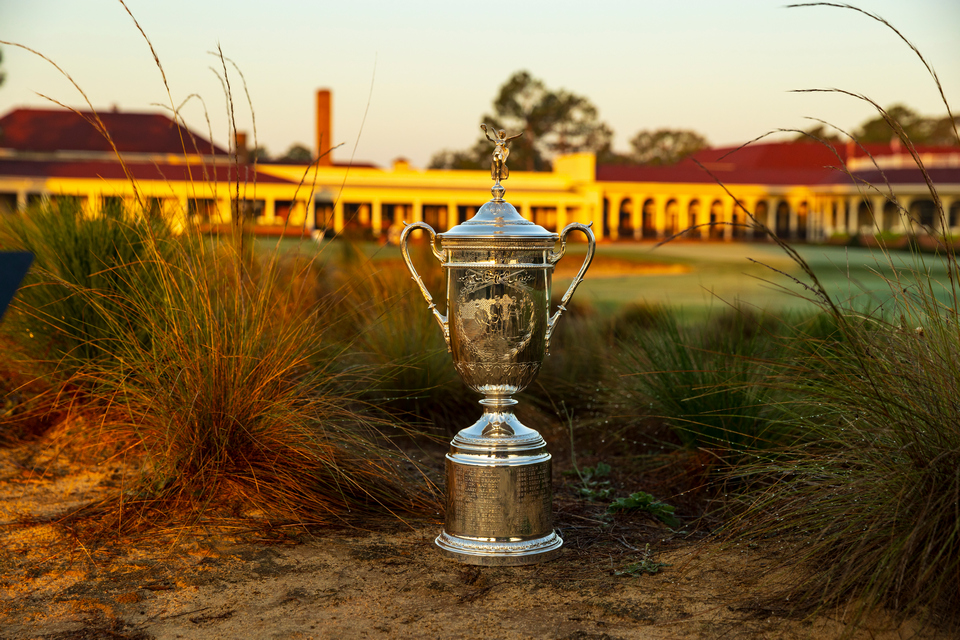
The Ross Philosophy
Donald Ross believed in providing wider fairways so players can determine the best angle of attack into the green.
Pinehurst No. 2 provides ample fairway widths but matters intensify quickly as the location of the flagstick determines the best side of the fairway to play one’s approach shot. If golf were a chess game, the opponent you face on the other side of the board is a brilliant foe in the way of Ross.
The putting surfaces at No. 2 can be among the most confounding for players to decipher. Elevated turtle-back characteristics work in tandem with an array of internal hard-to-decipher movements. The movements are not of the sweeping nature as found at other noted clubs such as Augusta National, Oakmont and Oakland Hills / South, but require a keen understanding of the slightest of movements found through the different sections of each putting surface.
Although the total square footage of a given green may be in the range of 7,500, the effective landing area for an optimum putt can be considerably less. For many players, the best advice on approach play is to shoot for the middle of the green and avoid the penalties that go with being inaccurate.
Closely mown areas immediately off the putting surfaces are a consistent feature at No. 2. Approach shots off by the slightest of margins can quickly run off. This leaves a range of options — including using one’s putter to get near the hole. Players can also chip back onto the putting surfaces but doing so from extremely tight lies can be nerve-wracking for those unable to provide the needed dexterity when doing so.
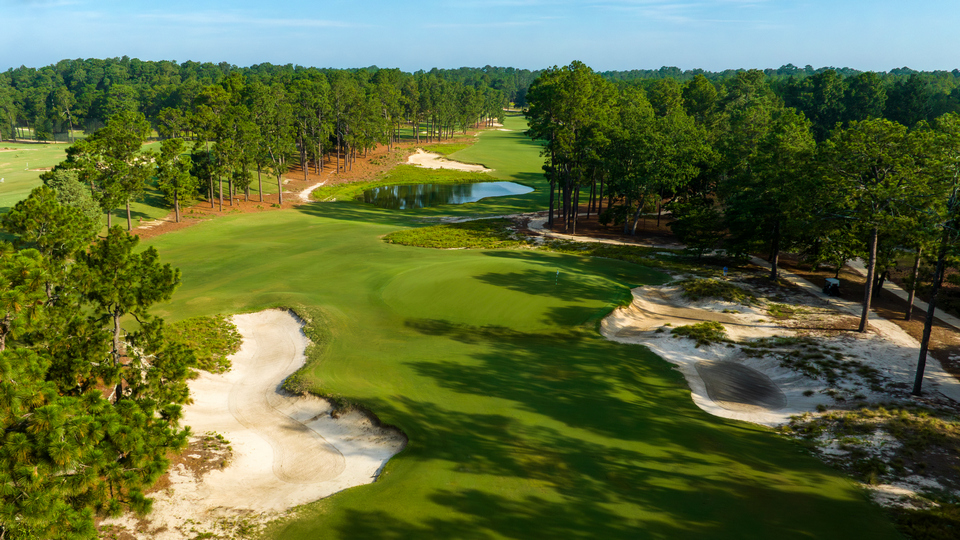
Death by a thousand cuts
Many people when playing No. 2 do not comprehend the difficulty that exists in scoring effectively. The absence of any noteworthy visceral elements — such as bodies of water or massive grade changes in the terrain — is not present.
No. 2 is about securing strategic positions at all times.
Once out of position the wherewithal to score becomes a far greater challenge.
Ross made consistent scoring a true challenge and #2 reflects that – particularly when ground conditions are firm and fast especially during peak playing times in the spring and fall.
Those playing No. 2 for the first time often question the greatness of the course. However, when glaring at their scorecard upon a round’s completion they will mutter how they should have shot lower than they did.
Ross imbued No. 2 as a finicky layout that never gives away rewards without someone earning the fruits of their labour.
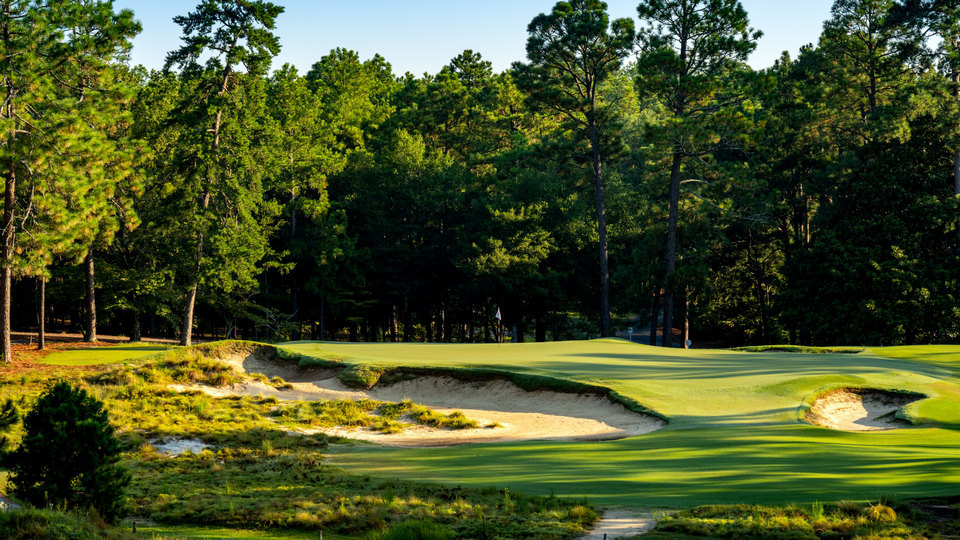
This year’s U.S. Open
As in 2014, the 4th and 5th holes will remain as a par-4 and par-5 combination. For the 1999 and 2005 Opens, the holes were played differently with a reverse par-designation.
The 4th moves downhill before heading upwards to an elevated green. The 528-yard hole puts a premium on length and accuracy off the tee.
The 5th reverses direction playing uphill and turning left in the drive zone. Played as a par-5 the hole provides players with a birdie opportunity but the green is vexing with falls-off to the left and bunkers right.
Champion Bermuda grass will be the new turf on all the greens on No. 2. The par-4 13th fairway has also been narrowed by 12 yards along with a few teeing areas that have been levelled out.
The USGA favours No. 2 because of the randomness of the different lies and stances players will encounter. It is that anxiety that could cause indecision on the clubs selected for the various shots and how cautiously or boldly one chooses to play throughout the round.
Pinehurst marks the first of the “Anchor Sites” the USGA will use in the years to follow. Before 1976 the U.S. Open had never been staged by the USGA south of Washington, D.C. and east of the Mississippi River.
Golf’s mecca in the United States is centred at Pinehurst. Bringing once again to the forefront the scintillating creativity of the No. 2 course through its renowned creator Donald Ross.
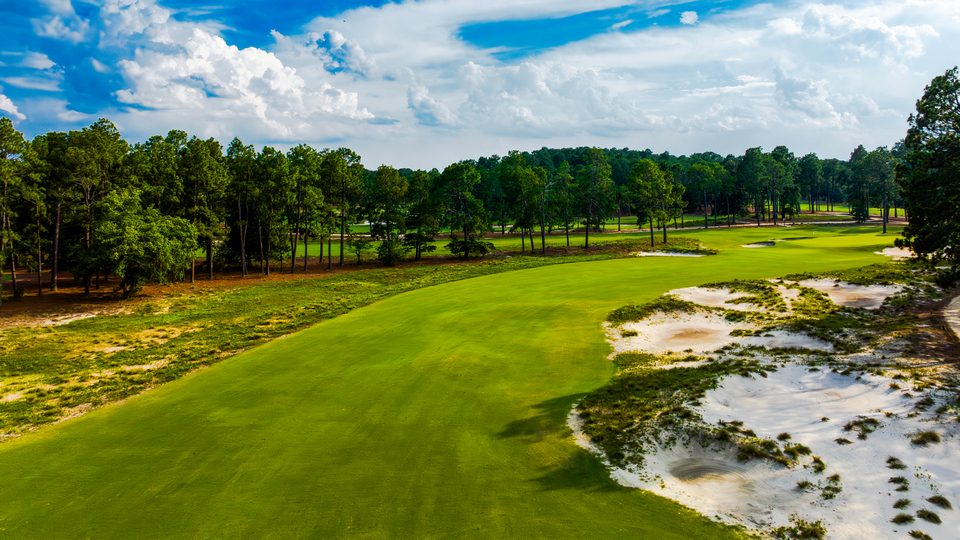
For the latest news in the golfing world, follow us on X (Formally Twitter).
